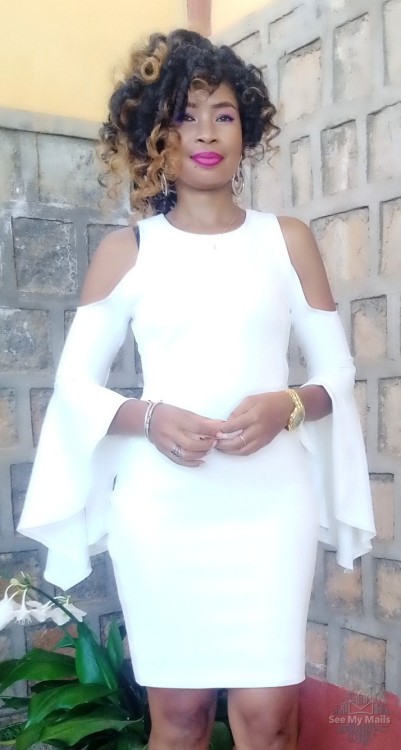View photo

0
128
Josline D.
Lady Josline, the Queen of Steevens, the two ruler of a growing empire. Lady Josline is the right hand of Steevens to accomplish their goals to unite the Empire of Haiti and Africa as the birth of The Tarterian Empire.
Steevens, is one of many sons of the forgotten Tarterian Empire. Steevens and his African Queen from Madagascar is working to create, develop, and Achieve the Goals of our people.
2025, the world is finally waking to the Matrix of this world. It is time to unite our spiritual frequency to the next step.
Madagascar ?? and Haiti ?? do share historical and cultural ties that make them “friends” in a symbolic way:
? Shared Francophone Identity: Both countries are part of the Organisation Internationale de la Francophonie (OIF), which unites French-speaking nations in cultural and political cooperation.
✊ Post-Colonial Solidarity: As two of the earliest nations to resist and overcome colonial domination (Haiti being the first Black republic in 1804, and Madagascar’s resistance movements against France in the late 19th and mid-20th century), there is a shared spirit of independence and resilience.
? Cultural Parallels: Both peoples have rich traditions in music, dance, and oral storytelling, often rooted in African and indigenous heritages.
? International Cooperation: They sometimes collaborate within global organizations (UN, AU observers, Francophonie, etc.) to strengthen South-South solidarity.
It’s not a strong geopolitical alliance like between neighboring states, but more of a cultural and historical friendship—linked by language, shared struggles, and a vision for cooperation in the Global South.
Today, Steevens and his Queen Josline is setting to increase the ties between Haiti and Madagascar in economic and military.
why Madagascar and Haiti can be seen as friends or “sister nations.”
Here are the key reasons, broken down:
Shared History of Liberation
Haiti (1804) became the first Black republic and the first independent nation in Latin America after defeating colonial powers.
Madagascar also fought against colonization, with notable resistance in 1947 before gaining full independence in 1960.
Both nations represent powerful symbols of resistance and freedom.
Common Language and Culture
Both are part of the Francophonie (French-speaking world), which connects them through language, literature, education, and cultural exchanges.
This creates a sense of belonging to the same extended cultural family.
Global South Solidarity
Madagascar and Haiti are both considered part of the developing world, facing similar challenges (economic growth, climate change, political instability).
This often pushes them to cooperate in international organizations like the United Nations or the Francophonie, where they support each other’s voices.
Cultural Similarities
Both nations have deep African roots (Haiti’s heritage from enslaved Africans, Madagascar’s Austronesian and African mix).
Music, dance, spirituality, and storytelling traditions play a big role in national identity.
? In short: Madagascar and Haiti are “friends” because they share a history of struggle against colonization, a common cultural-linguistic link through French, and a spirit of solidarity among nations of the Global South.
Steevens, is one of many sons of the forgotten Tarterian Empire. Steevens and his African Queen from Madagascar is working to create, develop, and Achieve the Goals of our people.
2025, the world is finally waking to the Matrix of this world. It is time to unite our spiritual frequency to the next step.
Madagascar ?? and Haiti ?? do share historical and cultural ties that make them “friends” in a symbolic way:
? Shared Francophone Identity: Both countries are part of the Organisation Internationale de la Francophonie (OIF), which unites French-speaking nations in cultural and political cooperation.
✊ Post-Colonial Solidarity: As two of the earliest nations to resist and overcome colonial domination (Haiti being the first Black republic in 1804, and Madagascar’s resistance movements against France in the late 19th and mid-20th century), there is a shared spirit of independence and resilience.
? Cultural Parallels: Both peoples have rich traditions in music, dance, and oral storytelling, often rooted in African and indigenous heritages.
? International Cooperation: They sometimes collaborate within global organizations (UN, AU observers, Francophonie, etc.) to strengthen South-South solidarity.
It’s not a strong geopolitical alliance like between neighboring states, but more of a cultural and historical friendship—linked by language, shared struggles, and a vision for cooperation in the Global South.
Today, Steevens and his Queen Josline is setting to increase the ties between Haiti and Madagascar in economic and military.
why Madagascar and Haiti can be seen as friends or “sister nations.”
Here are the key reasons, broken down:
Shared History of Liberation
Haiti (1804) became the first Black republic and the first independent nation in Latin America after defeating colonial powers.
Madagascar also fought against colonization, with notable resistance in 1947 before gaining full independence in 1960.
Both nations represent powerful symbols of resistance and freedom.
Common Language and Culture
Both are part of the Francophonie (French-speaking world), which connects them through language, literature, education, and cultural exchanges.
This creates a sense of belonging to the same extended cultural family.
Global South Solidarity
Madagascar and Haiti are both considered part of the developing world, facing similar challenges (economic growth, climate change, political instability).
This often pushes them to cooperate in international organizations like the United Nations or the Francophonie, where they support each other’s voices.
Cultural Similarities
Both nations have deep African roots (Haiti’s heritage from enslaved Africans, Madagascar’s Austronesian and African mix).
Music, dance, spirituality, and storytelling traditions play a big role in national identity.
? In short: Madagascar and Haiti are “friends” because they share a history of struggle against colonization, a common cultural-linguistic link through French, and a spirit of solidarity among nations of the Global South.


